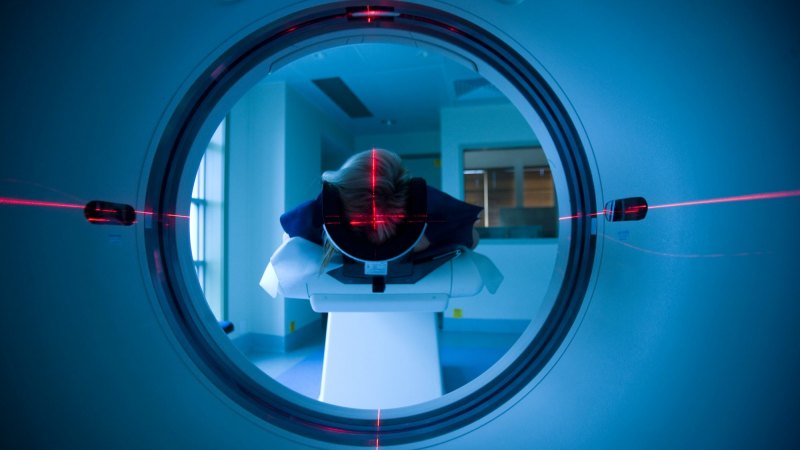Save articles for later
Add articles to your saved list and come back to them any time.
Healthcare workers are lobbying to strip bulk-billing rights from doctors who charge more than double the Medicare rebate, after half of union members surveyed said they couldn’t afford to pay for their own medical care.
Cutting down on the department’s use of consultants, reining in fraudulent and non-complying Medicare billing practices, and reducing the number of unnecessary medical imaging tests were some of the other recommendations made by the powerful Health Services Union in its submission to the NSW government’s special inquiry into healthcare funding.
Around 80 per cent of HSU members believe NSW Health is wasting money, and are particularly concerned about overuse of medical imaging tests. Credit: AFR
The union’s submission recommends removing rebates for specialists who charge more than double the schedule fee covered by Medicare, saying there was “no real limit to what specialists could charge patients”.
Dr Michael Bonning, president of the Australian Medical Association (NSW), the peak body representing doctors employed as contractors, said the state government had no control over the fees charged by any health professional, and as such would be out of the inquiry’s scope.
“We want the inquiry to focus on achievable health system solutions for the people of NSW,” he said.
In a survey of just under 800 HSU members last month, nearly 80 per cent said they thought NSW Health wasted money.
They raised particular concerns about more than $250 million in public funds spent on health-related consultants from 2011 to 2022, and doctors over-ordering diagnostic tests, leading to “a drain on resources, unnecessary increases in radiation exposure, delays in reporting, and extended wait times in emergency”.
The union submission also recommended increased monitoring of fraudulent or incorrect Medicare claims by doctors in the state health system, saying the Herald’s reporting of widespread fraud and non-compliance highlighted “a system that patently lacks appropriate governance and oversight”.
Bonning, who has previously criticised the inquiry as a power grab by the HSU, acknowledged the “fragmentation of health systems” occasionally resulted in over-ordering of diagnostic tests.
In response to claims of Medicare fraud, he said the AMA supported the findings of the 2022 review by health economist Pradeep Philip, which found the system was haemorrhaging up to $3 billion in waste.
“A very sick state of affairs”: HSU Secretary Gerard Hayes.Credit: Flavio Brancaleone
The union said all these issues had combined to make healthcare unaffordable for many Australians, including their own members.
In the HSU survey, 47 per cent of respondents said they could not afford necessary medical care, including specialist care for themselves and their family. Around a third (34.4 per cent) said they were able to afford medical expenses, and 18 per cent declined to answer.
The submission also included anonymous responses to the survey. A patient services manager said they needed to use a credit card to pay for an appointment with a cardiologist. It lasted three minutes and cost $800.
“Had I known the cost prior to the appointment, I wouldn’t have taken it,” they said.
Another health worker said they could not afford private surgery to address a chronic issue affecting their capacity to work.
“I live pay cheque to pay cheque and have two little mouths to feed,” they wrote. “It’s thoroughly depressing, I guess I’ll wait 9-12 months to see a public specialist, I don’t have a choice.”
Secretary Gerard Hayes, who made an inquiry into health spending a key demand before the state election earlier this year, described it as “a very sick state of affairs when the men and women who keep our hospitals running can’t afford to receive specialist care”.
“Australia needs to decide if it still cherishes the notion of universal health, where medical need trumps personal wealth,” he said. “If we do, we need to fight for it, because on the current trajectory it will fade away.”
The inquiry begins next week.
The Morning Edition newsletter is our guide to the day’s most important and interesting stories, analysis and insights. Sign up here.
Most Viewed in National
From our partners
Source: Read Full Article


